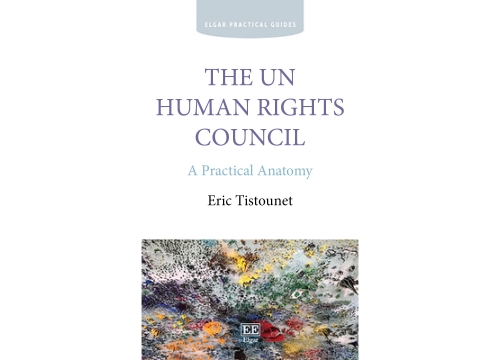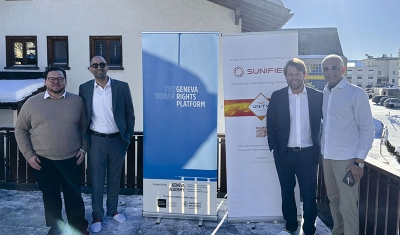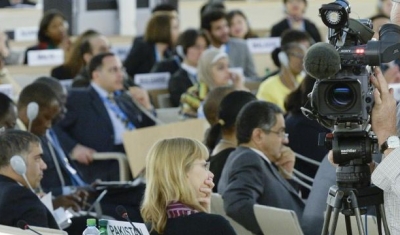Book Launch: A Practical Anatomy of the Human Rights Council
Event


Elgar
The book A Practical Anatomy of the Human Rights Council (Elgar) dissects every aspect of the United Nations (UN) Human Rights Council's (HRC) work and analyses the efficiency of, and interactions between, its mechanisms. Authored by Eric Tistounet, Chief of the HRC Branch at the Office of the UN High Commissioner for Human Rights (OHCHR), it provides unique practitioner insights into the complex decision-making processes of the Council alongside the core variations from its predecessor.
This book – set to become a key resource for NGOs, diplomats, UN officials and other participants in HRC proceedings, whilst also being valuable to human rights students and academics seeking to broaden their understanding of HRC operations – is the outcome of a six-month research fellowship carried out by the author at the Geneva Academy.
Presentation of the Book
- Eric Tistounet, Chief of the Human Rights Council Branch, OHCHR
Moderation
- Felix Kirchmeier, Executive Director, Geneva Human Rights Platform
Comments by
- Salma El Hosseiny, Programme Manager (Human Rights Council) International Service for Human Rights
- Bertrand Ramcharan, Former UN Acting and Deputy High Commissioner for Human Rights
- Coly Seck, Ambassador, Permanent Representative of Senegal to the UN Office at Geneva and Former President of the HRC
In Geneva and Online
This event will be held simultaneously in Geneva and online on the Zoom platform.
In Geneva
Participants wishing to follow the event at our headquarters Villa Moynier must announce themselves by email (charlotte.day[at]geneva-academy.ch), as the capacity of the conference room is limited to 20 persons to respect current regulations regarding social distancing. The wearing of a mask inside the premises is required.
Online
For online participation, you need to register to attend the meeting via this link.
After registering, you will receive a confirmation email containing information about joining the meeting.
Video
Book Launch: A Practical Anatomy of the Human Rights Council
At this launch event, the book's author, Eric Tistounet, presented his piece on the work of the UN Human Rights Council, with comments from various stakeholders involved in the work of this major human rights body, including the former Deputy-High Commissioner for Human Rights Bertrand Ramcharan, civil society representatives and diplomats.











